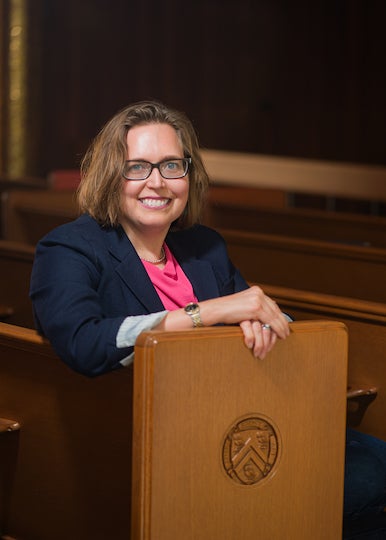As church membership declines across the United States, a new study from Rice University’s Boniuk Institute for the Study and Advancement of Religious Tolerance finds that working women do not feel supported by their clergy and churches, regardless of whether they’re involved with a more conservative or liberal congregation.
“The Limits of Congregational Support for Working Women” is part of a larger study of faith at work funded by Lilly Endowment Inc. It examines how working women feel about their church homes, from activities to sermons to pastoral support. The researchers conducted nearly 200 hours of interviews with 107 women across the country who identified as Christian, attended religious services at least once per month and were either employed (full time or part time) or seeking employment. The researchers also interviewed church clergy from 29 congregations around the U.S. about their church programming and services for women.
The study authors found that working women largely feel their employment is not valued within religious spaces, and some doubt that even the most well-meaning clergy can understand their experiences given that many clergy have not worked outside of religious institutions.
“When congregations are ill-equipped to serve workers, religious individuals are left without spiritual support to bridge the Sunday–Monday gap,” the researchers wrote.
Working women churchgoers said their churches are out of touch when planning activities and volunteer opportunities for women as many of these were scheduled during the workday. In contrast, men’s activities were scheduled on nights or weekends. The women interviewed also noted that male pastors are often unwilling to meet with them, preferring that pastoral spouses provide counsel in one-on-one settings. This was true in conservative churches as well as more progressive congregations, suggesting that women often lack access to their pastors.
“Clergymen have been taught not to meet with women to avoid the appearance of impropriety, but when nearly 80% of clergy are men and the majority of congregants are women, there isn’t adequate support there,” said Oneya Fennell Okuwobi of the University of Cincinnati, the lead author of the study.
Women also said that their churches rarely gave sermons or teachings specific to the challenges women face in the workplace. This came up despite the majority of pastors interviewed being able to name multiple of those challenges.
Denise Daniels, a co-author of the study and the Hudson T. Harrison Professor of Entrepreneurship at Wheaton College, noted that while many pastors believe they are attending to the needs of their working congregants, “there seems to be a disconnect between what pastors think they are communicating and what women congregants experience.”
Elaine Howard Ecklund, another of the study’s authors and the Herbert S. Autrey Professor of Social Sciences and director of the Boniuk Institute, said this lack of outreach to women is ironic given their level of involvement in churches.
“In almost every place in the world — but especially in the U.S. — women are much more religiously involved than men,” Ecklund said. “Given their participation, churches could do a better job of thinking through all types of women’s issues, especially considering that many of the women in their churches likely do work full time.”
“Integration between faith and work produces tremendous benefits for worker well-being, satisfaction and commitment,” the researchers wrote. “Unless churches ensure those benefits are equally available to men and women, they may unwittingly contribute to gender inequity, even if they preach equity.”
The study was funded by Lilly Endowment Inc. (#2017 0021 and #2020 1655); an abstract is online at https://journals.sagepub.com/doi/abs/10.1177/0034673X231208129.

